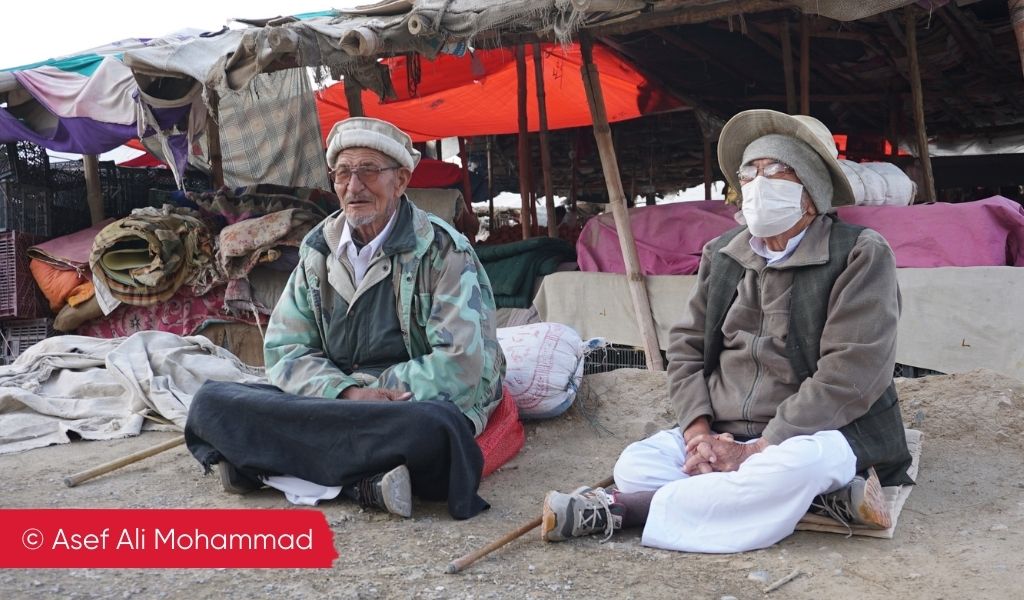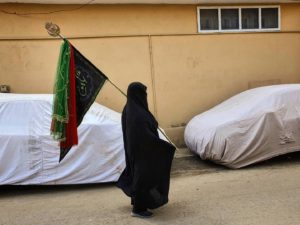The spread of Covid-19 in Pakistan was largely blamed on Shia pilgrims returning from Iran, including Hazara Shias, after Iran announced its first Covid-19 deaths in February 2020. Last year, the IDS-led CREID programme published perspectives from the frontline on experiences of the Hazara community and also supported six local researchers to delve a little deeper into the impact of this on the attitudes of non-Shias of Quetta, Pakistan. Their findings are shared below and in a forthcoming blog mini-series.

Vegetable market in Hazara Town, Quetta, Pakistan. Credit: Asef Ali Mohammad
A year ago, after Iran was one of the first countries to announce suspected Covid-19 deaths in its Shia Islam pilgrimage city of Qom, Pakistan temporarily closed its border with Iran. Thousands of Pakistanis returning from Iran, including pilgrims and traders, were at first stranded in Iran then quarantined at Taftan in Balochistan, southwestern Pakistan, a remote, largely desert and mountainous province which is mineral-rich but mainly poor and under-developed.
In Pakistan, Shia believers, who represent about 10–15 per cent of the population, are regarded as apostates by some extremist Sunni groups. Many face regular hostility from extremists and public calls for members to be killed. The most vulnerable are the sizeable Hazara population in Balochistan’s capital, Quetta, who are both an ethnic and religious minority, and so already faced intersectional discrimination.
So, were the controversial measures taken by the authorities fuelled by underlying discrimination towards the Hazara Shia?
The Pakistani government said it had no choice but to quarantine returnees from Iran, however that they were being unfairly singled out for the unhygienic, insanitary quarantine camps while other travellers were barely temperature checked. Those quarantined were initially detained in squalid conditions for up to 40 days and then sometimes families seemed to be randomly separated into different quarantine centres. Meanwhile, references to the ‘Shia virus’ circulating on social media. In one WhatsApp group, a doctor was heard saying that, if the Hazaras come to the office, “tell them we’re closed”. Measures by a number of public authorities, prior to any formal overall lockdown, specifically targeted and restricted the movements of Hazaras. Notifications by the Inspector General of Police, Balochistan, sent members of the community “on leave to prevent the outbreak of covid-19.” In mid-March, the chief secretary of Balochistan the highest executive position in the province, announced that Hazara areas would be secluded from the rest of Quetta.
Two senior federal government ministers, both Shia, were later singled out for exacerbating the spread of Covid-19 as part of an organised campaign. One, a Special Assistant to the Prime Minister, was accused of using his influence to let pilgrims enter Pakistan, an accusation which was subsequently proved wrong following an internal inquiry.
To date, there have been 19,035 total confirmed cases and 200 deaths in Balochistan, but there is no exclusive data for Quetta or Hazaras.
Did official actions and social media rumours affect ‘ordinary’ citizens attitudes towards the Shia?
Last summer, six researchers supported by the IDS-led CREID programme wanted to learn how much all this had affected Baloch attitudes towards Hazara Shias. They developed a 14-question survey which they ran with 110 non-Shia Quetta residents, randomly selected in shopping malls, local courts, busy markets and government offices. They ensured ethnic groups such as Pashtoon, Baloch and Punjabi-Sindhi were fairly represented.
Here are some headlines:
- There were mixed opinions on whether Hazara pilgrims were believed to be the main spreaders of the virus in Balochistan (39% respondents believed they were, 36% said they were not and 25% were neutral. Of those who believed the pilgrims were responsible for the spread, 44% were women and 35% were men).
- When it came to Hazara Shia protests against enforced quarantines, respondents were broadly supportive (53%) as opposed to 26% who disagreed with the protest while 21% felt neutral about them.
- Asked if they’d seen a change in attitude towards Hazaras (after they were blamed for Covid-19) overall 61% respondents agreed that they had while 39% denied this.
In our forthcoming mini-blog series,
- Sajjad Hussain Changezi and Raheela Habib explore reactions to media assertions about the ‘Shia’ virus’.
- Activists, Marzia Akhlaqi and Farwa Batool, along with Sajjad Hussain, reflect on whether respondents are displaying double standards over restrictions or bans on Shia rituals as compared to Sunni ones.
- Mohammad Aman and Sadiqa Sultan analyse survey responses by gender (available in English and Urdu)

